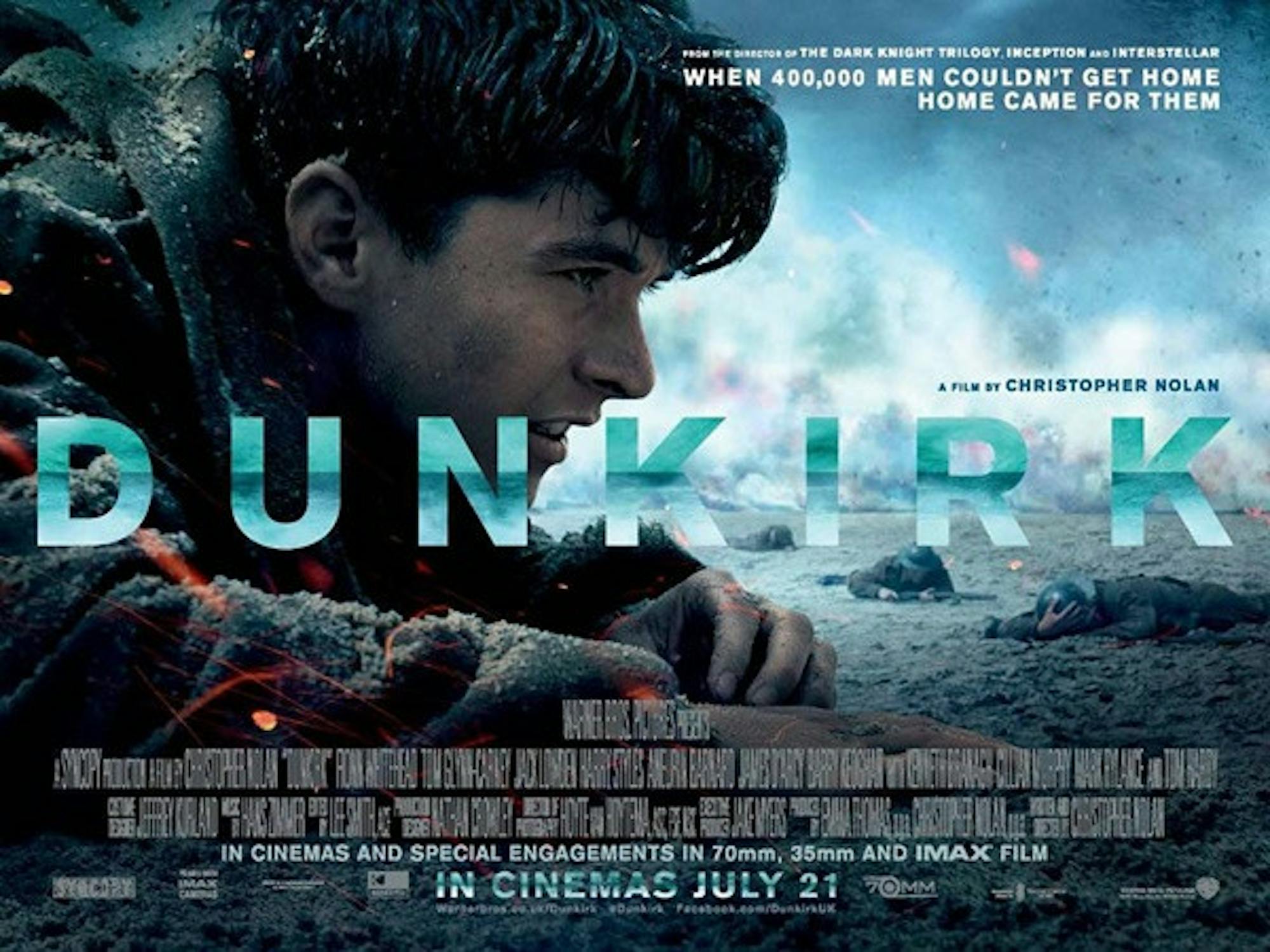In the final scene of “Dunkirk” (2017), having finally escaped their stranded position in France and reached England, Tommy (Fionn Whitehead) and Alex (Harry Styles) board a troop train headed for London. After dozing off, Tommy receives a paper and reads aloud Churchill’s famous speech: “We shall fight on the beaches … We shall fight on the seas and oceans … We shall never surrender.” Pausing, Tommy looks briefly back at Alex before the film abruptly ends.
The scene makes for an unexpected ending to Christopher Nolan’s first film since his 2014 sci-fi drama “Interstellar" — it's the first and only moment when politics and ideology are explicitly mentioned in the entire film. The famous Dunkirk evacuation, in which 350,000 Allied forces cornered by the Germans in northern France in June 1940 were miraculously evacuated, is detailed with a marked austerity. Nolan weaves a stark survival story completely devoid of the inspired monologues and rallying speeches about good and evil we've come to expect from our war pictures. “Dunkirk” is a story about men trying to cross a channel. Some of them die.
The austere storytelling of “Dunkirk” has spurred international debate since the film’s release. The Washington Post’s Richard Cohen critically called it “a war film for the Trump era,” branding Nolan’s decision to omit the historical context from the film as irresponsible. Much has also been made of the film's apparent obliviousness to the efforts of French soldiers in holding off the German army. Le Monde’s Jacques Mandelbaum asked, “Where in the film are the 120,000 French soldiers who were also evacuated from Dunkirk? Where are the 40,000 who sacrificed themselves to defend the city?” Manimugdha Sharmal of the Times of India also criticized the lack of representation by soldiers conscripted from the combatants' colonial empires, pointing out that "Britain did not fight the Second World War, the British Empire did."
The most obvious omission, however, is that of the Germans. The presence of German soldiers in the film is reduced to tiny specks seen through plane windows and to the unseen sources of bullets fired at the protagonists. They are not even mentioned by name; they are simply “the enemy.” Cohen posits that “dolts seeing this movie could conclude that the British and French were fighting the Irish or Latvians.” Rather than interweave the monstrosity of Nazi Germany and the ideology that spurred World War II, Nolan chooses to ignore the reason the soldiers were there: unprovoked Nazi aggression.
Despite these contextual concerns about “Dunkirk,” Nolan accomplishes what he appears to set out to do. Taken as a simple story of survival, the film manages to guide the audience through the range of emotions and experiences of the soldiers at Dunkirk with realism, compassion and gravitas. Indeed, many critics are already counting “Dunkirk” among the greatest war films of all time. Such accolades are not entirely unfounded — Nolan’s film portrays the nuts and bolts of the Dunkirk evacuation with steadiness and clarity.
Despite its intensity and visual feats, Nolan's film seems oblivious as to what was at stake on those beaches in June 1940. When those stakes — the fight against Nazi fascism, European domination and genocide — are a watershed of modern history, this omission by a filmmaker of Nolan’s caliber leaves the story peculiarly incomplete. As Cohen notes, the WWII politics he chooses to ignore were "about who shall live and who shall die." The fighting portrayed in “Dunkirk” is intense and realistic, but what was all of that fighting for?
Despite intensity, 'Dunkirk' doesn't know what it's fighting for

JOE
Summary
Although replete with the stunning visuals and focused storytelling we've come to expect from Christopher Nolan, "Dunkirk" lacks the historical context and international representation to carry it to greatness.
3 Stars





